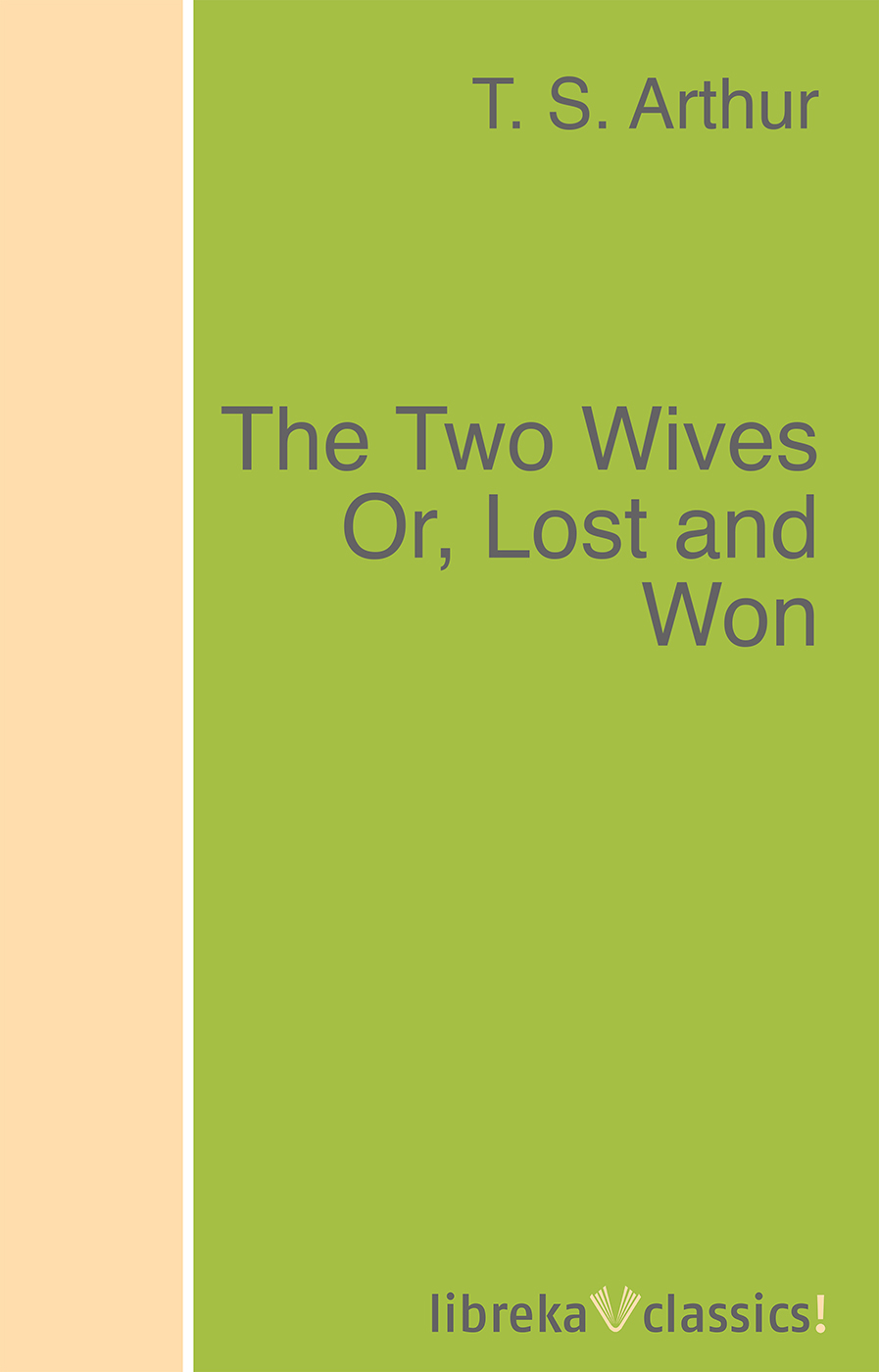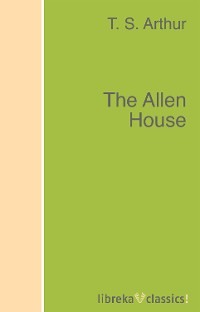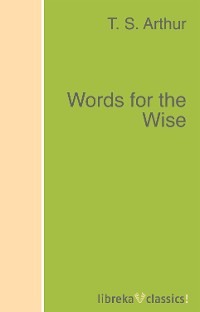
Полная версия
The Two Wives Or, Lost and Won


Titel: The Two Wives / Or, Lost and Won
von Oliver Goldsmith, Samuel Pepys, William Dean Howells, John Burroughs, William Harmon Norton, L. Mühlbach, Franklin Knight Lane, Walter Pater, Jonathan Swift, Augusta J. Evans, Trumbull White, Kathleen Thompson Norris, Matthew Arnold, Charles W. Colby, Shakespeare, James Fenimore Cooper, D. H. Lawrence, James Joyce, Ada Cambridge, Philip E. Muskett, Catherine Helen Spence, Rolf Boldrewood, Ernest Scott, Fergus Hume, H. G. Wells, Victor [pseud.] Appleton, Roald Amundsen, Max Simon Nordau, Henry David Thoreau, E. Phillips Oppenheim, Richard Wagner, Franz Liszt, Charlotte Mary Yonge, Charles Henry Eden, Charles Babbage, T. R. Malthus, Unknown, Joseph Ernest Morris, Robert Southey, Isabella L. Bird, Charles James Fox, Thomas Hariot, Cyrus Thomas, Bart Haley, Christopher Morley, Edgar Saltus, Marie Corelli, Edmund Lester Pearson, Robert Browning, John Aubrey, Benjamin Nathaniel Bogue, John McElroy, John Galsworthy, Henry James, Hamilton Wright Mabie, Mina Benson Hubbard, Elizabeth Cleghorn Gaskell, John Keble, Henry Lindlahr, Richard Henry Dana, Annie Wood Besant, Immanuel Kant, John Habberton, Baron Edward John Moreton Drax Plunkett Dunsany, T. B. Ray, Isabel Ecclestone Mackay, Frank C. Haddock, William John Locke, baron Arthur Léon Imbert de Saint-Amand, Ralph Centennius, United States, Library of Congress. Copyright Office, James Otis, George Hartmann, Sir Arthur Conan Doyle, George Gissing, John Henry Tilden, Thomas Wright, Frederick Samuel Dellenbaugh, Anonymous, J. Clontz, David Hume, Margot Asquith, Elmer Ulysses Hoenshel, Byron J. Rees, Lida B. McMurry, Georges Duhamel, Ramsay Muir, Edith Wharton, Charles Sturt, Lola Ridge, J. M. Stone, Annie Payson Call, Grant Allen, kniaz Petr Alekseevich Kropotkin, Steve Solomon, Isabel Moser, Aleksandr Sergeevich Pushkin, Horace W. C. Newte, Charles Darwin, Maurice Maeterlinck, Walter Bagehot, Henri Bergson, George Randolph Chester, John S. C. Abbott, L. Frank Baum, William T. Sherman, Philip Henry Sheridan, Friedrich Wilhelm Nietzsche, Ambrose Bierce, Ulysses S. Grant, F. Scott Fitzgerald, Alfred Lichtenstein, Abbot of Nogent-sous-Coucy Guibert, Nellie L. McClung, Alice Caldwell Hegan Rice, E. Nesbit, Henri Barbusse, J. M. Synge, Frank Norris, Louis Hémon, Henry Van Dyke, Thomas Guthrie Marquis, Susanna Moodie, Frank Bigelow Tarbell, René Descartes, Kirk Munroe, Francis Hopkinson Smith, Edna St. Vincent Millay, Talbot Mundy, George Meredith, Clemens Brentano, James De Mille, James Allen, Norman Douglas, Bolton Hall, Arthur Christopher Benson, James Oliver Curwood, Frank Jardine, Bertram Lenox Simpson, Freiherr von Justus Liebig, Cyril G. Hopkins, Mary Eleanor Wilkins Freeman, Evelyn Scott, Charles Monroe Sheldon, George Berkeley, Steven Sills, Sara Jeannette Duncan, Jules Verne, Irvin S. Cobb, Zane Grey, August von Kotzebue, John Addington Symonds, Marjorie Allen Seiffert, J. B. Bury, William Makepeace Thackeray, Jules Renard, Susan Coolidge, Huguette Bertrand, Mrs. C. F. Fraser, Ottilie A. Liljencrantz, William Morton Payne, Henry Adams, T. S. Arthur, Orison Swett Marden, T. S. Ackland, Anthony Trollope, graf Leo Tolstoy, Robert Smythe Hichens, Émile Gaboriau, Wilkie Collins, Charles Reade, Horace Walpole
ISBN 978-3-7429-4478-8
Alle Rechte vorbehalten.
Es ist ohne vorherige schriftliche Erlaubnis nicht gestattet, dieses Werk im Ganzen oder in Teilen zu vervielfältigen oder zu veröffentlichen.
THE TWO WIVES;
OR, LOST AND WON.
BY
T. S. ARTHUR.
PHILADELPHIA:
1851.
I II III IV V VI VII VIII IX X XI XII XIII XIV XV XVI XVII XVIII XIX XX XXI XXII
PREFACE.
THE story of the "Two Wives; or, Lost and Won," is intended to show the power of tender, earnest, self-forgetting love, in winning back from the path of danger a husband whose steps have strayed, and who has approached the very brink of ruin; and, by contrast, to exhibit the sad consequences flowing from a want of these virtues under like circumstances.
This book is the third in the Series of "ARTHUR'S LIBRARY FOR THE HOUSEHOLD." The fourth, which is nearly ready, will be called "THE WAYS OF PROVIDENCE; OR, HE DOETH ALL THINGS WELL."
THE TWO WIVES.
OR, LOST AND WON
CHAPTER I.
"YOU are not going out, John?" said Mrs. Wilkinson, looking up from the work she had just taken into her hands. There was a smile on her lips; but her eyes told, plainly enough, that a cloud was upon her heart.
Mrs. Wilkinson was sitting by a small work-table, in a neatly furnished room. It was evening, and a shaded lamp burned upon the table. Mr. Wilkinson, who had been reading, was standing on the floor, having thrown down his book and risen up hastily, as if a sudden purpose had been formed in his mind.
"I shall only be gone a little while, dear," returned Mr. Wilkinson, a slight air of impatience visible beneath his kind voice and manner.
"Don't go, John," said Mrs. Wilkinson, still forcing a smile to her countenance. "I always feel so lonely when you are away. We only have our evenings to be together; and I cannot bear then to be robbed of your company. Don't go out, John; that's a good, dear husband."
And Mrs. Wilkinson, in the earnestness of her desire to keep her husband at home, laid aside her sewing, and rising, approached and leaned her hands upon his shoulder, looking up with an affectionate, appealing expression into his face.
"You're a dear, good girl, Mary," said Mr. Wilkinson, tenderly, and he kissed the pure lips of his wife as he spoke. "I know it's wrong to leave you alone here. But, I won't be gone more than half an hour. Indeed I won't. See, now;" and he drew forth his watch; "it is just eight o'clock, and I will be home again precisely at half-past eight, to a minute."
Mrs. Wilkinson made no answer; but her husband saw that tears were in the eyes fixed so lovingly upon him.
"Now don't, love," said he, tenderly, "make so much of just half an hour's absence. I promised Elbridge that I would call around and see him about a little matter of business, and I must keep my word. I had forgotten the engagement until it crossed my mind while reading."
"If you have an engagement." There was a certain emphasis in the words of Mrs. Wilkinson that caused her husband to partly turn his face away.
"I have, dear. But for that, I should not think of leaving you alone."
Almost instinctively Mrs. Wilkinson withdrew the hands she had placed upon the shoulder of her husband, and receded from him a step or two; at the same time her face was bent downwards, and her eyes rested upon the floor.
For some moments Mr. Wilkinson stood as if in earnest debate with himself; then he said, in a cheerful, lively tone—
"Good-by, love. I shall only be gone half an hour." And turning away, left the room. He did not pause until he was in the street. Then a spirit of irresolution came over him, and he said to himself, as he moved slowly away,
"It isn't kind in me to leave Mary alone in this way; I know it isn't. But I want to see Elbridge; and, in fact, partly promised that I would call upon him this evening. True, I can say all I wish to say to him in the morning, and to quite as good purpose. But—"
Wilkinson, whose steps had been growing more and more deliberate, stopped. For some time he stood, in a thoughtful attitude—then slowly returned. His hand was in his pocket, his dead-latch key between his fingers, and his foot upon the marble sill of his door. And thus he remained, in debate with himself, for as long a time as two or three minutes.
"Yes; I must see him! I had forgotten that," he exclaimed, in a low tone, and suddenly stepped back from the door, and with a rapid pace moved down the street. A walk of ten minutes brought him to the house of Mr. Elbridge. But it so happened that this gentleman was not at home.
"How soon do you expect him to return?" was inquired of the servant.
"He may be here in half an hour; or not before ten o'clock," was the reply.
Wilkinson was disappointed. Leaving his name with the servant, and saying that he would probably call again during the evening, he descended the steps and walked away. He was moving in the direction of his home, and had arrived within a block thereof when he stopped, saying to himself as he did so—
"I must see Elbridge this evening. It is already nearly half an hour since I left home, and I promised Mary that I would not remain away a moment longer than that time. But, I did not think Elbridge would be out. Poor Mary! She looks at me with such sad eyes, sometimes, that it goes to my very heart. She cannot bear to have me out of her sight. Can she doubt me in any thing? No; I will not believe that. She is a loving, gentle-minded creature—and one of the best of wives. Ah me! I wish I were more like her."
Still Wilkinson remained standing, and in debate with himself.
"I will go home," said he, at length, with emphasis, and walked quickly onward. He was within a few doors of his own home, when his steps began to linger again. He had come once more into a state of irresolution.
"Perhaps Elbridge has returned." This thought made him stop again. "He must have understood me that I would be around."
Just at this moment the crying of a child was heard.
"Is that Ella?" Wilkinson walked around a little way, until he came nearly opposite his own house. Then he stopped to listen more attentively.
Yes. It was the grieving cry of his own sick babe.
"Poor child!" he murmured. "I wonder what can ail her?"
He looked up at the chamber windows. The curtains were drawn aside, and he saw upon the ceiling of the room the shadow of some one moving to and fro. He did not doubt that it was the shadow of his wife, as, with their sick babe in her arms, she walked to and fro in the effort to soothe it again to sleep. Had there been a doubt, it would have been quickly dispelled, for there came to his ears the soft tones of a voice he knew full well—came in tones of music, low and soothing, but with most touching sweetness. It was the voice of his wife, and she sang the air of the cradle-hymn with which he had been soothed to rest when he lay an innocent babe in his mother's arms.
The feelings of Wilkinson, a good deal excited by the struggle between affection and duty on the one side, and appetite and inclination on the other, were touched and softened by the incident, and he was about entering his house when the approaching form of a man, a short distance in advance, caught his eye, and he paused until he came up.
"Elbridge! The very one I wished to see!" he exclaimed, in a low voice, as he extended his hand and grasped that of his friend. "I've just been to your house. Did you forget that I was to call around?"
"I didn't understand you to say, certainly, that you would call, or I should have made it a point to be at home. But no matter. All in good time. I'm on my way home now, and you will please return with me."
"I don't know about that," said Wilkinson, who could not forget his promise to his wife. "I told Mary, when I went out, that I would only be gone half an hour, and that time has expired already."
"Oh, never mind," returned the other, lightly. "She'll forgive you, I'll be bound. Tell her that you came home, in all obedience to her wishes, but that I met you at your own door, and carried you off in spite of yourself."
And as Elbridge said this, he drew his arm within that of Wilkinson, and the two men went chatting away.
Elbridge was fond of good wine, and always kept a few choice bottles on hand. Wilkinson knew this; and, if he had looked narrowly into his heart on the present occasion, he would have discovered that the wine of his friend had for him a stronger attraction than his company.
As the latter had anticipated, wine and cigars were produced immediately on their arrival at the house of Elbridge; and in the exhilaration of the one and the fumes of the other, he soon forgot his lonely, troubled wife and sick child at home.
A friend or two dropped in, in the course of half an hour; and then a second bottle of wine was uncorked, and glasses refilled with its sparkling contents.
The head of Wilkinson was not very strong. A single glass of wine generally excited him, and two or three proved, always, more than he could bear. It was so on this occasion; and when, at eleven o'clock, he passed forth from the house of his friend, it was only by an effort that he could walk steadily. The cool night air, as it breathed upon his heated brow, partially sobered him, and his thoughts turned towards his home. A sigh and the act of striking his hand upon his forehead marked the effect of this transition of thought.
"Poor Mary! I didn't mean to stay away so late. I meant to return in half an hour," he muttered, half aloud. "But this is always the way. I'm afraid I've taken too much of Elbridge's wine; a little affects me. I wonder if Mary will notice it; I wouldn't have her to do so for the world. Poor child! it would frighten her to death. I rather think I'd better try to walk off the effects of what I've been drinking. It's late, any how, and fifteen or twenty minutes will make but little difference either way."
As Wilkinson said this, he turned down a cross street which he happened to be passing at the moment, and moved along with a quicker pace. Gradually the confusion of his thoughts subsided.
"I wish I had remained at home," he sighed, as the image of his wife arose distinctly in his mind. "Poor Mary! I broke my word with her, though I promised so faithfully. Oh, dear! this weakness on my part is terrible. Why was I so anxious to see Elbridge? there was no real engagement, and yet I told Mary there was. I would not have her know of this deception for the world. I forgot about dear little Ella's being so sick; what if we should lose that little angel? Oh! I could not bear it!"
Wilkinson stopped suddenly as this thought flashed over his mind. He was soberer by far than when he left the house of Mr. Elbridge.
"I'll go home at once." He turned and began quickly retracing his steps. And now he remembered the moving shadow on the wall, as he stood, nearly three hours before, in front of his house, debating with himself whether to enter or no. He heard too, in imagination, the plaintive cries of his sick child, and the soothing melody of its mother's voice as she sought to hush into sleep its unquiet spirit.
CHAPTER II.
WILKINSON was nearly in front of his own door, when he was thus familiarly accosted by a man named Ellis, who came leisurely walking along with a lighted cigar in his mouth.
"Hallo! is this you, Wilkinson? What in the name of wonder are you doing out at such an hour?"
"And suppose I were to ask you the same question?" inquired Wilkinson, as he took the hand of the other, who was an old acquaintance.
"It would be easily answered," was the unhesitating reply of Ellis, who had been drinking rather freely.
"Well, suppose I have the benefit of your answer."
"You're quite welcome. I keep no secrets from an old friend, you see. Can't you guess?"
"I'm not good at guessing."
"Had a little tiff with Cara," said Ellis in a half whisper, as he bent to the ear of his companion.
"Oh, no!" returned Wilkinson.
"Fact. Cara's a dear, good soul, as you know; but she's a self-willed little jade, and if I don't do just as she wants me to—if I don't walk her chalk line—presto! she goes off like a rocket. To-night, d'ye see, I came home with the first volume of Prescott's new work on Mexico—a perfect romance of a book, and wanted to read it aloud to Cara. But no, she had something else in her head, and told me, up and down, that she didn't want to hear any of my dull old histories. I got mad, of course; I always get mad when she comes athwart my hawes in this way.
"'Dull old histories!' said I, indignantly. 'There's more true life and real interest in this book than in all the Wandering Jews or Laura Matilda novels that ever were written; and I wish you'd throw such miserable trash into the fire, and read books from which to get some intelligence and strength of mind.' Whew! The way she combed my hair for me at this was curious. I am a philosopher, and on these occasions generally repeat to myself the wise saw—
'He that fights and runs away,
May live to fight another day.'
So, deeming discretion the better part of valour, I retreated in disorder."
"That's bad," remarked Wilkinson, who knew something of the character of his friend's wife.
"I know it's bad; but, then, I can't help myself. Cara has such a queer temper, I never know how to take her."
"You ought to understand her peculiarities by this time, and bear with them."
"Bear with them! I'd like to see you have the trial for a while; your wife is an angel. Ah, John! you're a lucky dog. If I had such a sweet-tempered woman in my house, I would think it a very paradise."
"Hush! hush! Harry; don't speak in that way. Few women possess so many good qualities as Mrs. Ellis; and it is your duty to cherish and love the good, and to bear with the rest."
"Well preached; but, as I am to apply the discourse, and not you, I must beg to be excused."
"Good-night. Go home, kiss Cara, and forgive her," said Wilkinson; and he made a motion to pass on, adding, as he did so, "I'm out much later than usual, and am in a hurry to get back. Mary will be uneasy about me."
But Ellis caught hold of one of his arms with both hands, and held on to him.
"Can't let you go, Wilkinson" said he, firmly. "You're the man of all others I want to see—been thinking about you all the evening; want to have a long talk with you."
"Any other time, but not now," replied Wilkinson.
"Now, and no other time," persisted the other, clinging fast to his arm.
"What do you wish to talk about?" said Wilkinson, ceasing his effort to release himself from the firm grip of his friend.
"About Cara," was answered.
"Go home and make it up with her; that's the best way. She loves you, and you love her; and your love will settle all differences. And besides, Harry, you shouldn't talk about these things to other people. The relation between man and wife is too sacred for this."
"Do you think I talk in this way to everybody? No, indeed!" responded Ellis, in a half-offended tone of voice. "But you're a particular friend. You know Cara's peculiar temper, and can advise with me as a friend. So come along, I want to have a talk with you."
"Come where?"
Ellis turned and pointed to a brilliant gas lamp in the next square, that stood in front of a much frequented tavern.
"No, no; I must go home." And Wilkinson tried to extricate himself from the firm grasp of his friend. But the latter tightened his hold, as he said—
"It's of no use. I shall not let you go. So come along with me to Parker's. Over a couple of brandy toddies we will discuss this matter of Cara's."
A vigorous jerk from the hand of Ellis gave the body of Wilkinson a motion in the direction of the tavern. Had his mind been perfectly clear—had none of the effects of his wine-drinking at Elbridge's remained, he would have resisted to the end this solicitation, at the hour and under the circumstances. But his mind was not perfectly clear. And so, a few steps being taken by compulsion, he moved on by a sort of constrained volition.
As mentioned above, Wilkinson had nearly reached his own door when he encountered Ellis; was, in fact, so near, that he could see the light shining from the chamber-window through which, some hours before, he had marked on the wall the flitting shadow of his wife, as she walked to and fro, seeking to soothe into slumber her sick and grieving child. For nearly five minutes, he had stood talking with his friend, and the sound of their voices might easily have been heard in his dwelling, if one had been listening intently there. And one was listening with every sense strung to the acutest perception. Just as Wilkinson moved away, an observer would have seen the door of his house open, and a slender female form bend forth, and look earnestly into the darkness. A moment or two, she stood thus, and then stepped forth quickly, and leaning upon the iron railing of the door steps, fixed eagerly her eyes upon the slowly receding forms of the two men.
"John! John!" she called, in half suppressed tones.
But her voice did not reach the ear of her husband, whose form she well knew, even in the obscurity of night.
Gliding down the steps, Mrs. Wilkinson ran a few paces along the pavement, but suddenly stopped as some thought passed through her mind; and, turning, went back to the door she had left. There she stood gazing after her husband, until she saw him enter the tavern mentioned as being kept by a man named Parker, when, with a heavy, fluttering sigh, she passed into the house, and ascended to the chamber from which she had, a few minutes before, come down.
It was past eleven o'clock. The two domestics had retired, and Mrs. Wilkinson was alone with her sick child. Ella's moan of suffering came on her ear the instant she re-entered the room, and she stepped quickly to the crib, and bent over to look into its face. The cheeks of the child were flushed with fever to a bright crimson, and she was moving her head from side to side, and working her lips as if there was something in her mouth. Slight twitching motions of the arms and hands were also noticed by the mother. Her eyes were partly open.
"Will Ella have a drink of water?" said Mrs. Wilkinson, placing her hand under the child's head, and slightly raising it from the pillow.
But Ella did not seem to hear.
"Say—love, will you have some water?"



